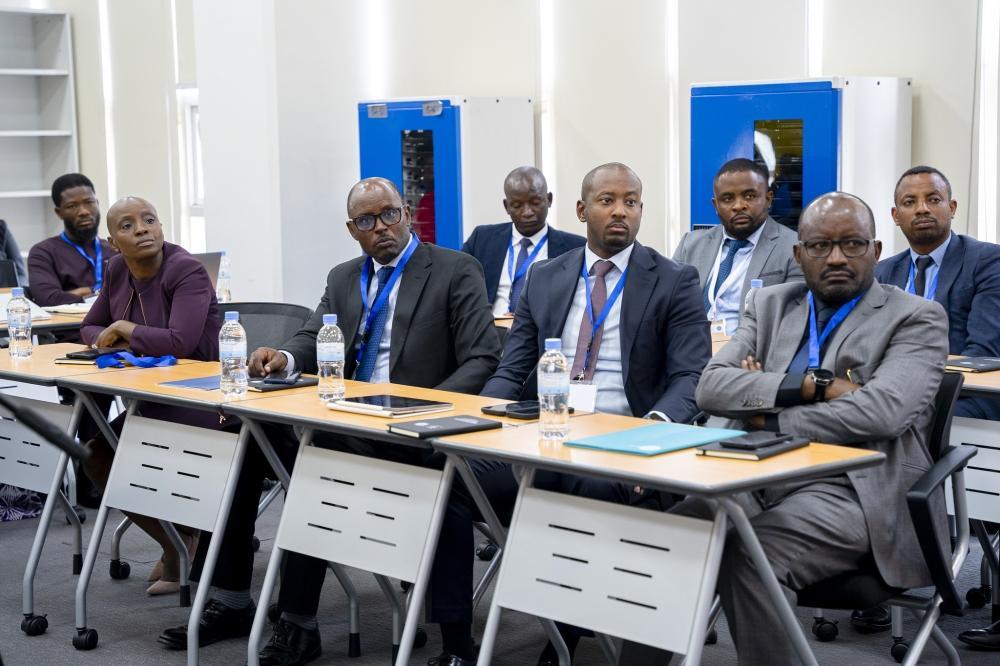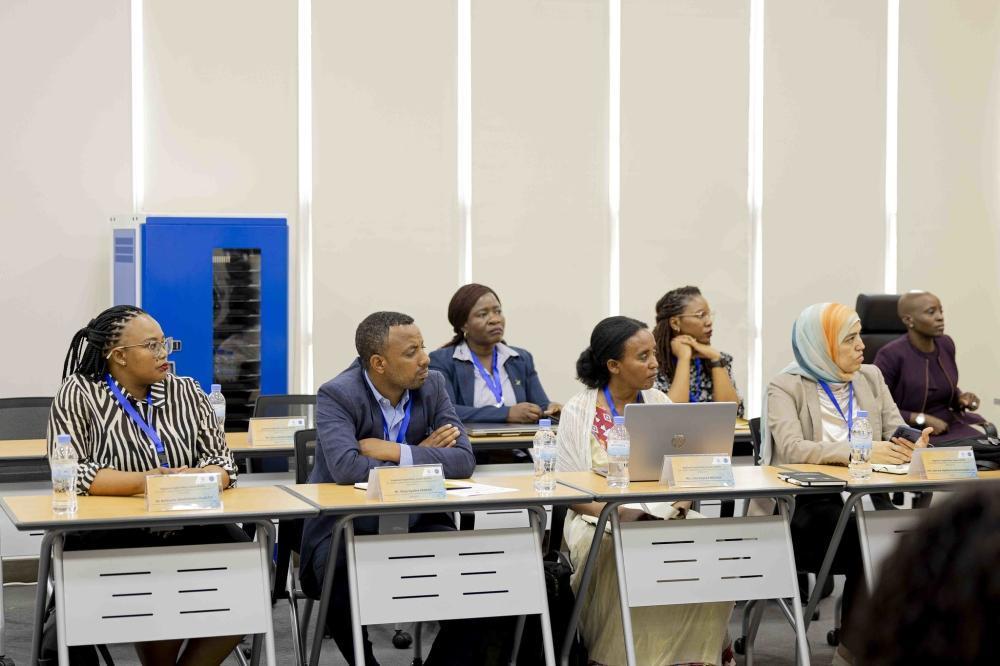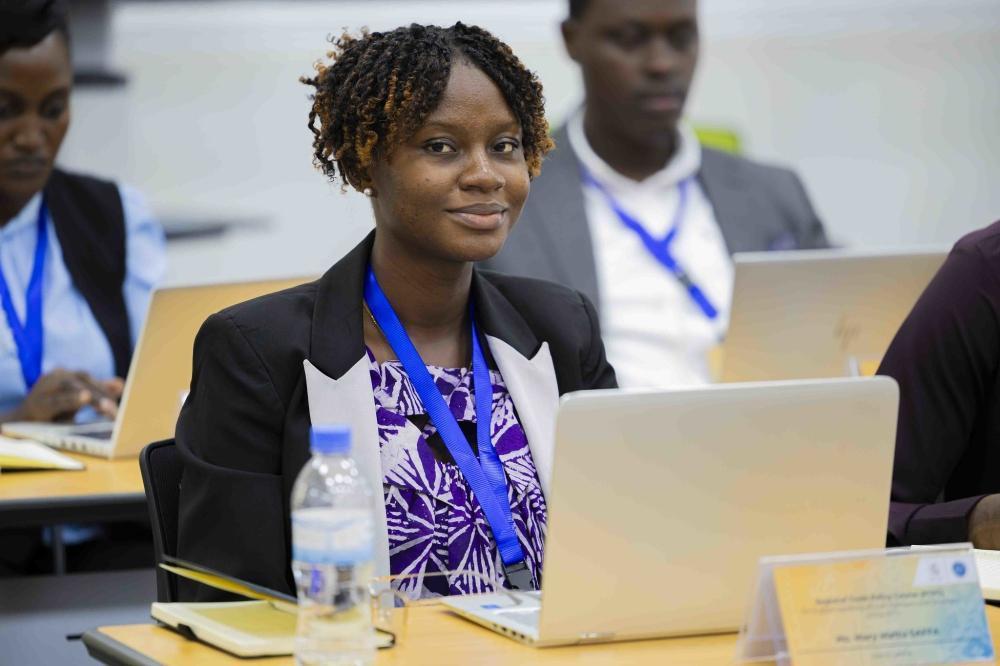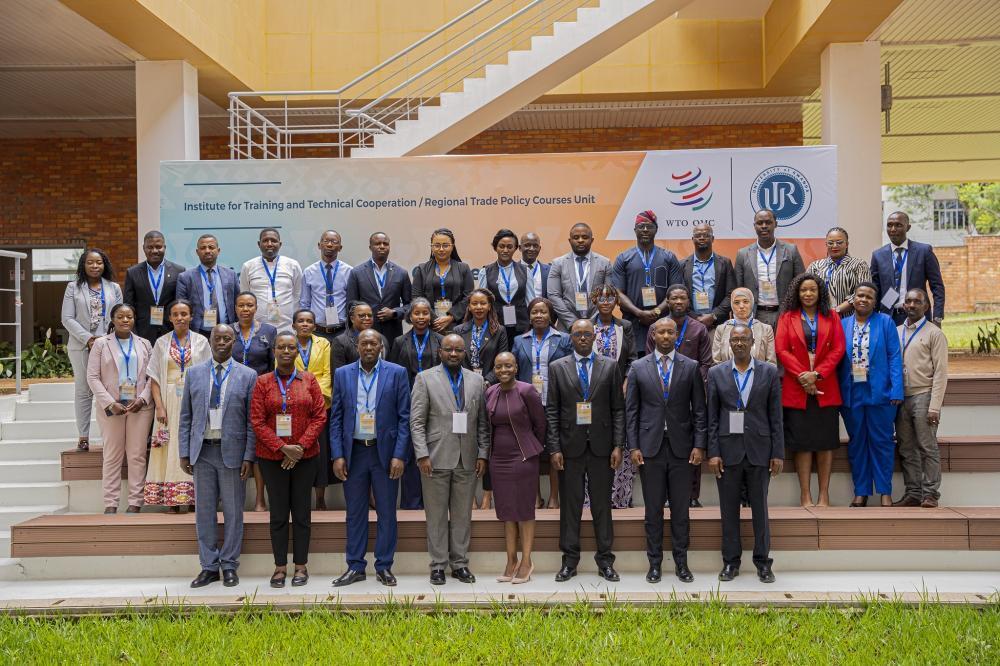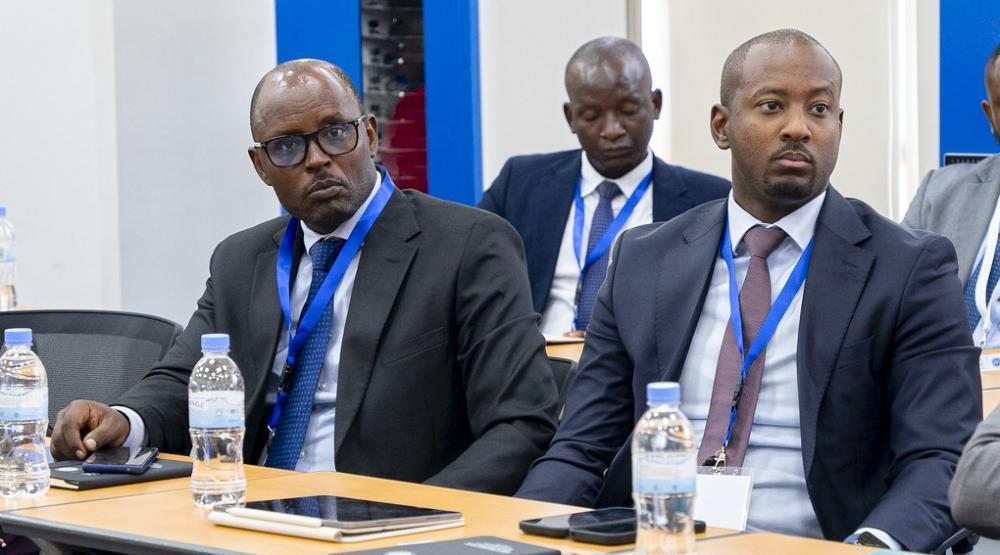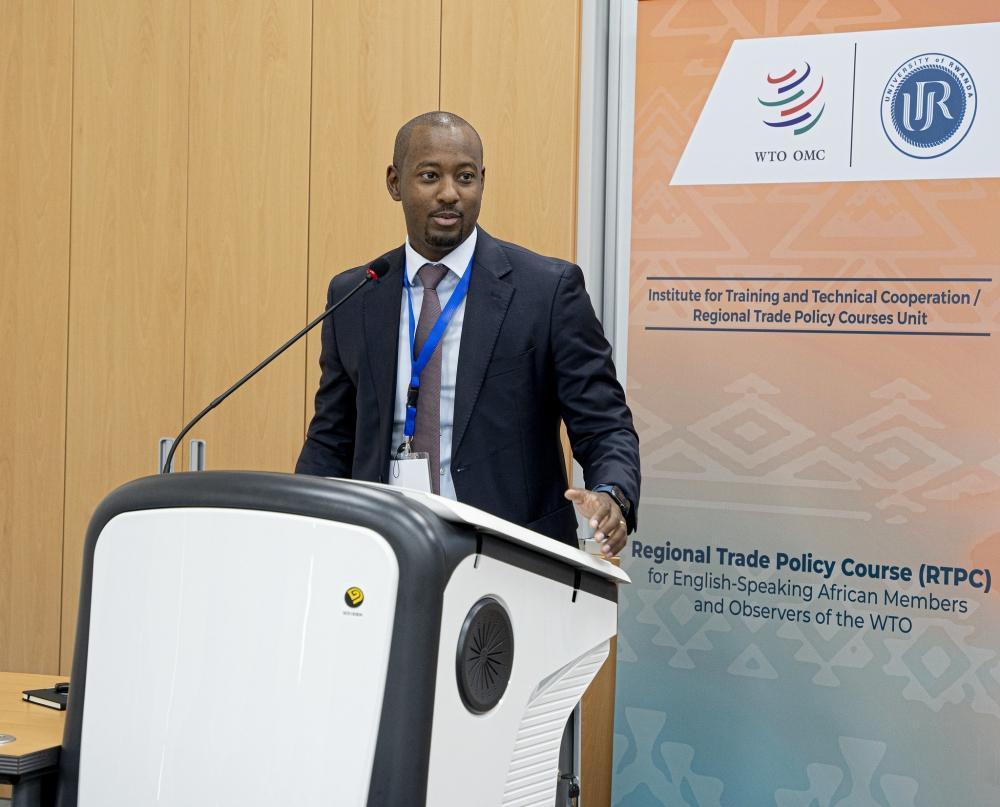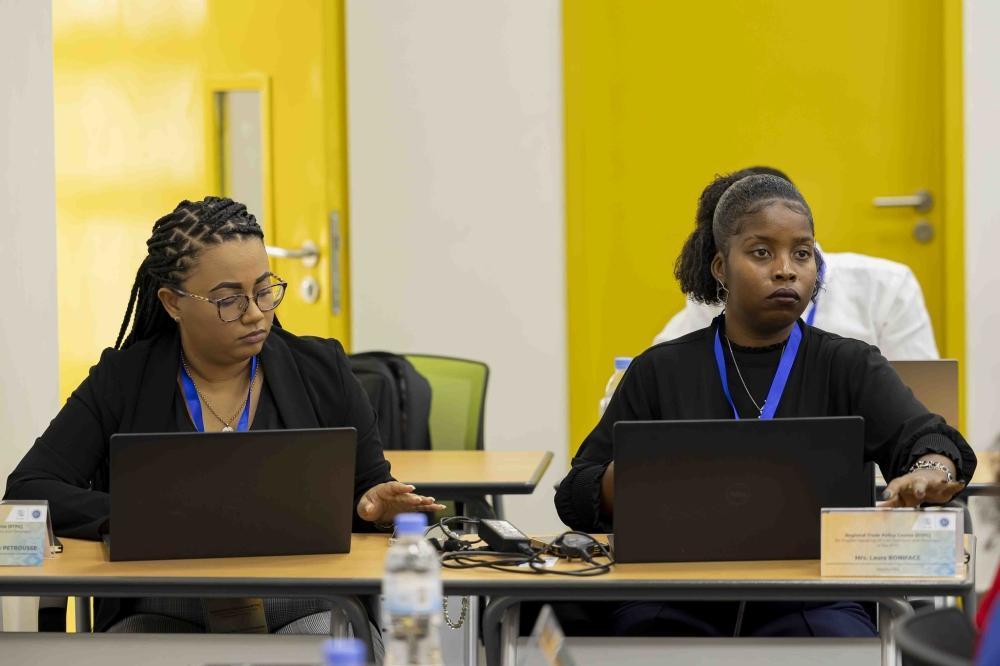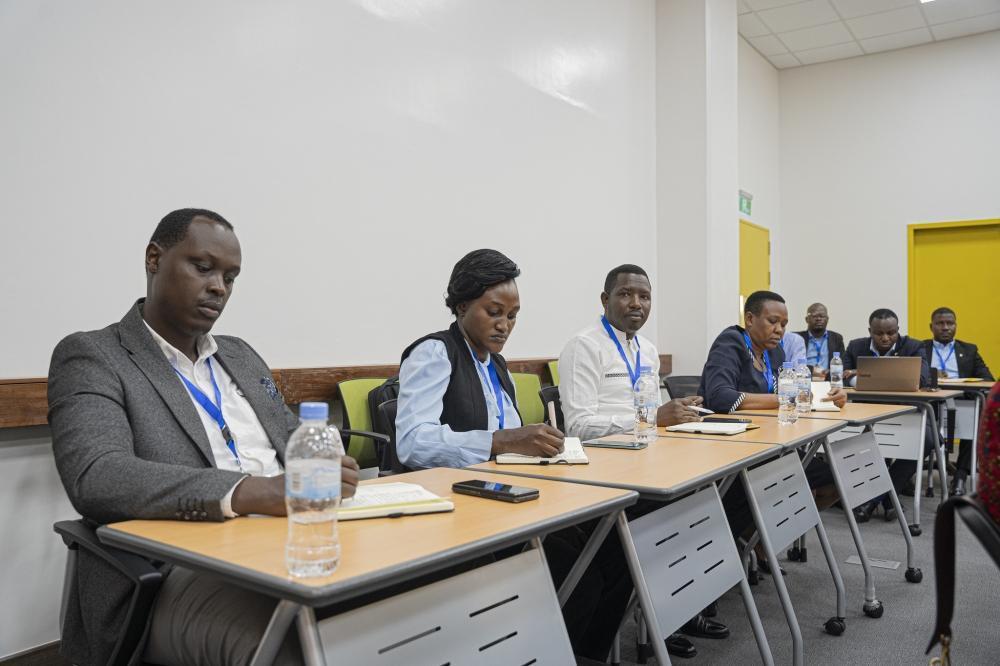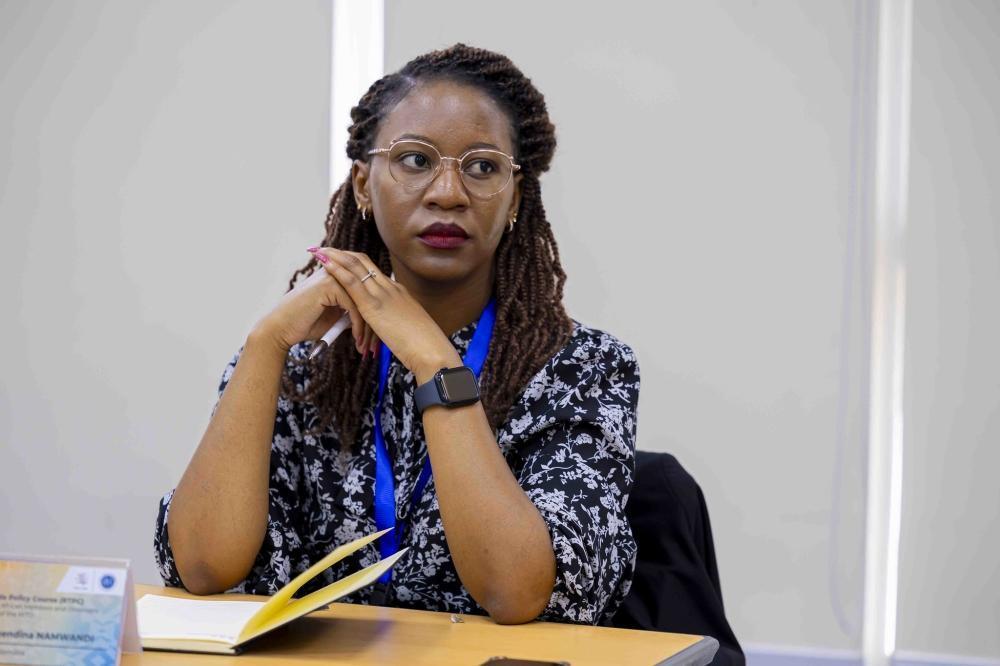Africa-Press – Rwanda. The University of Rwanda (UR) and the World Trade Organization (WTO) officially launched a training course for trade negotiators from English-speaking African countries on May 26, 2025.
The course, running until July 18, 2025, aims to enhance participants’ understanding of multilateral trade agreements and strengthen Africa’s representation in global trade negotiations. Seventeen African countries are participating in the training programme.
Joseph Nkurunziza, Principal of the College of Business and Economics at UR, explained that the course is designed to equip African professionals with the skills necessary to engage effectively in international trade systems.
He noted that the training would prepare a cohort of experts to amplify Africa’s voice in global trade policy-making.
The curriculum covers a broad range of topics, including market access, services, intellectual property, and other key WTO agreements.
Nkurunziza said that the programme supports sustainable development, economic growth, and integration into the global economy.
Didas Kayihura Muganga, Acting Vice Chancellor for the University of Rwanda, underlined that today’s world demands a deep understanding of global trade policy due to ongoing changes and interconnected economies.
“The course is seen as a step towards building that unified African trade perspective. The course will produce a team of specialists to amplify Africa’s influence in international trade talks and policy development,” he noted.
In 2024, the University of Rwanda was selected to host the WTO’s Regional Trade Policy Courses (RTPC) for English-speaking African countries, marking Rwanda as the first least-developed country to host the RTPC.
This milestone underscores Rwanda’s commitment to strengthening capacities in trade negotiation, international business, and international trade through teaching, research, and outreach activities.
During the launch of the training on May 26, 2025, WTO Director-General Ngozi Okonjo-Iweala, stated, “Over eight weeks, participants will deepen their knowledge of WTO rules and trade policy, gain practical skills for engaging with the WTO system, explore how their national trade policies align with WTO agreements, and discuss ways to strengthen and reform the global trading system.”
She noted that the capacity-building initiative is timely, given the current global challenges such as geopolitical tensions, trade conflicts, climate change, and technological disruption.
Despite these challenges, she affirmed that the WTO remains essential for global trade stability, driving growth, innovation, and poverty reduction.
Okonjo-Iweala advocated for “re-globalisation”, aiming for a more inclusive, resilient, and equitable global economy.
She said the upcoming 14th WTO Ministerial Conference in Cameroon will serve as a key opportunity for Africa to advance regional priorities, implement reforms, and finalise agreements on critical trade issues.
She also urged participants to encourage their governments to ratify the WTO’s Agreement on Fisheries Subsidies, which, as of now, had been ratified by only 8 out of 26 English-speaking African WTO members.
Antoine Kajangwe, Permanent Secretary of the Ministry of Trade and Industry, who officially opened the regional trade course for English-speaking African countries, stressed the importance of understanding complex WTO rules and agreements, viewing these skills as vital for Africa’s integration into global trade systems and for enhancing negotiation capabilities.
Kajangwe acknowledged current global trade challenges, including rising protectionism, doubts about globalisation, and instability in the multilateral system.
He encouraged participants to use the knowledge and tools gained from the course to defend and improve the multilateral trading system from within.
Vonai Muyambo, Head of the Regional Trade Policy Course Unit at the WTO, reiterated the need for building the capacity of trade negotiators in English-speaking African countries.
She noted that the course aims to empower participants with knowledge and practical tools to understand WTO agreements more deeply, use WTO systems and tools independently, negotiate more effectively for their countries’ interests, and identify opportunities available through the WTO system.
The training lasts eight weeks and covers a wide range of WTO-related topics, including market access, services, intellectual property, and other key WTO agreements.
Muyambo said that participants will be better equipped to represent and advocate for their countries in trade negotiations, enabling their governments to navigate and benefit from the global trade system.
Christine Sitawa, representing the Kenya Export Promotion and Branding Agency under Kenya’s Ministry of Trade, Industry, and Investments, expressed her interest in improving her skills in trade policy negotiation, particularly within the African context.
She looks forward to learning from other participants across the continent about how they develop and analyse trade policies and represent their countries in negotiations, aiming to effectively represent Kenya in future talks.
Motanyane Sepiriti from Lesotho added that he hopes to enhance his knowledge and build a stronger African network through this course.
Regarding international trade agreements, he believes the course will help address issues arising from recent global changes, including the post-COVID economic landscape and policies under the Trump administration. He reiterated the need to review and revise trade agreements to better respond to these new realities.
The course, running until July 18, 2025, aims to enhance participants’ understanding of multilateral trade agreements and strengthen Africa’s representation in global trade negotiations.
Seventeen African countries are participating in the training programme
Officials and participansts pose for a group photo at the launch of a training course for trade negotiators from English-speaking African countries on May 26, 2025.
Didas Kayihura Muganga, Acting Vice Chancellor for the University of Rwanda and Antoine Kajangwe, Permanent Secretary of the Ministry of Trade and Industry during the launch on May 26.
Antoine Kajangwe, Permanent Secretary of the Ministry of Trade and Industry, delivers his remarks at the opening event on May 26
For More News And Analysis About Rwanda Follow Africa-Press

